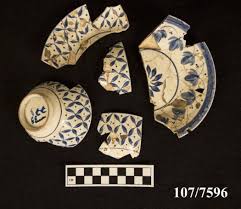Historical Archaeology of African-American Freeperson Communities of Massachusetts
- Ethical Archaeology - MEAS
- Feb 26, 2021
- 1 min read
Updated: Feb 28, 2021

Massachusetts Ethical Archaeology Society presents a review of historical archaeology in Massachusetts of African-American Freepersons. Both on the larger scale of enclaves, and on the scale of single homes, African-American communities share many features from the pre-emancipation period through the mid-twentieth century. One common feature is locational marginality in a physical sense, accompanied by social marginality. Common threads and cultural roots have been hypothesized in the form of house plans, connecting Yoruba and African-American Freeperson traditions. The slow attrition of these communities does not appear to be well-documented or deeply studied so far. Some features of the 20th century community history suggest links to dynamics of the overall de-landing of African-American communities across the nation, especially in the Southeast.
Read more at "Today in MA:"
Black History (and Archaeology): "New Guinea - Parting Ways" and Blacks Who Freed America;
Black History and Archaeology in the Berkshires: The Fitch-Hoose House and the Gulf Freepersons;
African-American Archaeology of Massachusetts - Lucy Foster's Home and Garden;
Black History (and Archaeology) Month: A Micro-History -Black History and Archaeology in My Small Town
New in related: Saxon Woods, Free African-American Community Remembered















Comments